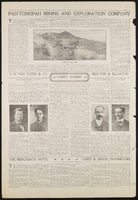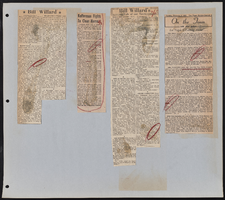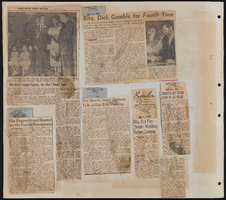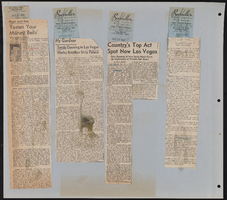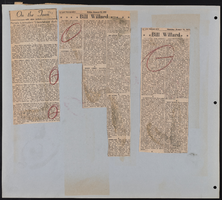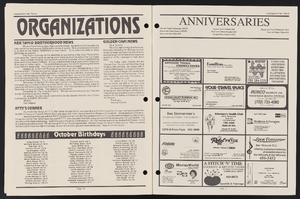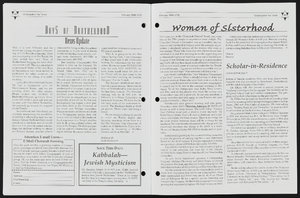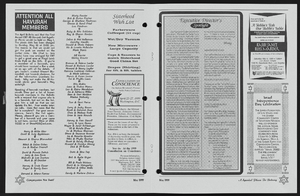Search the Special Collections and Archives Portal
Search Results
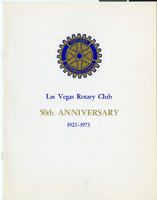
Las Vegas Rotary Club 50th Anniversary Program, 1973
Date
1973
Archival Collection
Description
50 year anniversary program for the Las Vegas Rotary Club, from 1923-1973.
Text

Transcript of interview with Judith Ann Allaire by Tracye Ann Collins, March 10, 1980
Date
1980-03-10
Archival Collection
Description
Tracye Ann Collins interviews teacher Judith Ann Allaire in her classroom at Valley High School in Las Vegas, Nevada. Allaire was born in Chicago, Illinois on March 24th, 1944, and relocated to Las Vegas, Nevada in 1955. This interview covers education, growing up in Las Vegas, and politics in Nevada. Allaire also discusses the various job titles she has held, such as medical social worker, secretary, cocktail waitress, drug counselor, dancer, and teacher, in Las Vegas, Nevada.
Text
Pagination
Refine my results
Content Type
Creator or Contributor
Subject
Archival Collection
Digital Project
Resource Type
Year
Material Type
Place
Language
Records Classification

